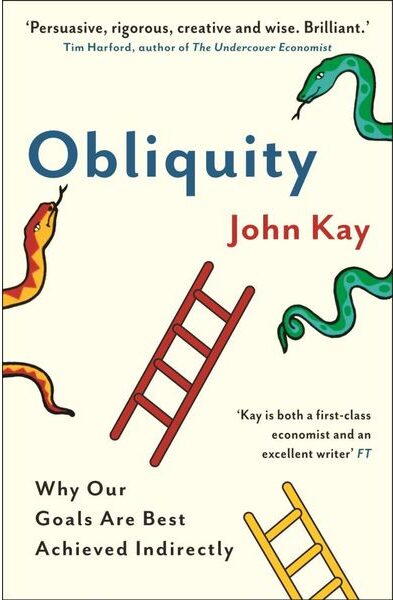Obliquity: Why our goals are best achieved indirectly
Obliquity is the principle that complex goals are best achieved indirectly. This book explains why the happiest people aren’t necessarily those who focus on happiness, why the richest men and women are not the most materialistic, and why the most successful cities are not planned. If a company announces shareholder return as its number one goal, perhaps we should beware: the most profit-orientated companies aren’t usually the most profitable.
Whether overcoming geographical obstacles, winning decisive battles or meeting sales targets, history shows that oblique approaches are the most successful, especially in difficult terrain. John Kay applies his provocative, universal theory to everything from international business to town planning and from football to managing forest fire.
About Sir John Kay
Sir John Kay is one of Britain’s leading economists. His interests focus on the relationships between economics and business. His career has spanned academic work and think tanks, business schools, company directorships, consultancies and investment companies. For twenty years, he wrote a regular column for the Financial Times. He was awarded a knighthood in the Queen’s 2021 Birthday Honours List for services to economics, business and finance.
Watch: John Kay on Obliquity



